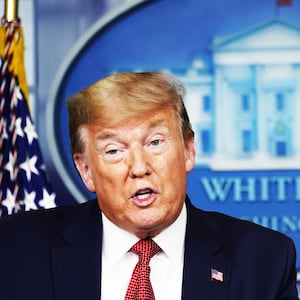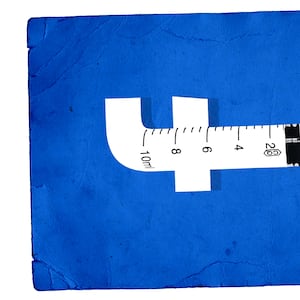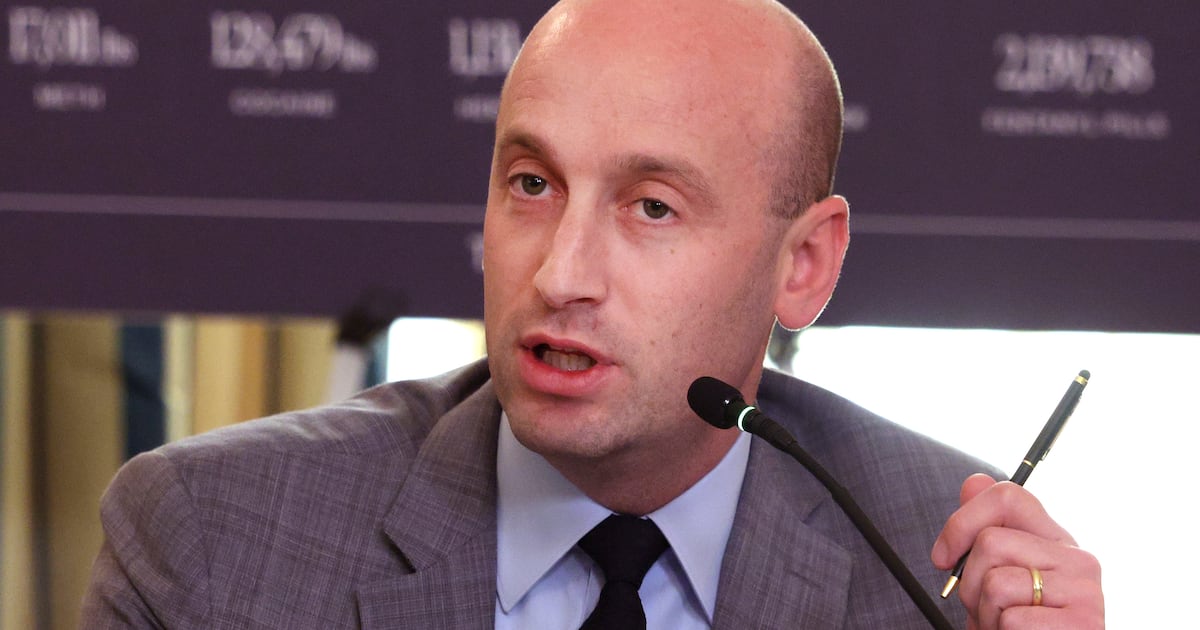Protests against social distancing and stay-at-home guidelines in states across the country have become fertile ground for anti-vaccine activists, foreshadowing future showdowns over government-led efforts to help bring an end to the coronavirus pandemic.
Del Bigtree, a notorious anti-vaccination activist before the emergence of COVID-19, attended a reopening rally in Austin last weekend to find out why the protesters were showing up. Bigtree told The Daily Beast that he saw a lot of overlap between anti-vaccine activists who distrust vaccines and the rally-goers, who were complaining that the public health policies put in place by state governments are unconstitutional and draconian relative to the health crisis at hand.
“I think the science is falling apart,” Bigtree said, citing models he called “a disaster.”
On April 17, Bigtree featured Wendy Darling, founder of anti-stay-at-home-order group “Michigan United for Liberty” and an attendee of one of the Michigan protests, on his online show The High Wire, which usually dedicates programming to questioning health professionals and settled science. Asked by Bigtree whether the demonstrations showed that at least some Michiganders “are not afraid of dying from the coronavirus,” Darling said: “In our group, in particular, we've got thousands of people in Michigan United for Liberty and the consensus there is, you know, we are not. We're more afraid of the government than we are of the virus at this point.”
Bigtree isn’t the only drawing connections between the anti-vaccine movement—which advocates for the fallacious notion that vaccines cause autism or other ailments—and the movements against the stay-at-home orders. Anti-vaccine activists have pushed a hashtag calling for President Donald Trump to fire the government’s top infectious disease expert, Dr. Anthony Fauci—a message that evolved into a “Fire Fauci” chant at the Texas rally Bigtree attended. Some participants in the reopening rallies have also adopted “I Do Not Consent” as their go-to sign formulation, which is the same language that’s become a popular phrase for anti-vaccination activists.
“That’s one of their biggest slogans,” said Amy Pisani, the executive director of pro-vaccine group Vaccinate Your Family.
The predominantly right-wing activists calling for states to reopen businesses amid the pandemic have also criticized vaccines in their online communities. On “Michiganders Against Excessive Quarantine,” a Facebook group with more than 350,000 members that has become a hotbed for anti-social distancing protests in the state, thousands of members said they wouldn’t take any future vaccine. Some posters pushed conspiracy theories that the vaccine would be the “mark of the Beast” or a tracking device used by billionaire Bill Gates.
A user in “Reopen Missouri,” another Facebook group devoted to rapidly reopening businesses, made a popular post that included a vow to never take any future coronavirus vaccine.
“I refuse to receive said vaccine to make others feel more safe,” it read. “I won’t set myself—or my children—on fire to keep you warm.”
The possibility of anti-vaccine advocates gaining a foothold in the protests against public safety laws could portend even dicier problems for government agencies ahead. Health officials have said that a vaccine for coronavirus is one of, if not the, surest ways to emerge through the crisis and return to a semblance of social normalcy. But that depends on wide-scale cultural acceptance of the vaccination—which optimistically could be 18 months away from production—and the coronavirus pandemic has drawn more online interest to anti-vaccine causes.
Jackie Schlegal, the founder of well-funded anti-vaccine group Texans for Vaccine Choice, claims that her group has received an “overwhelming influx of support” and a load of traffic from people concerned about coronavirus vaccine exemptions.
The anti-vaccine language used by the reopening activists marks the latest confluence between anti-vaccine activists and anti-government groups, who have teamed up in the past to fight vaccine mandates, according to Pisani.
“It’s not new that these libertarians and ultra-anti-government individuals have been working together with anti-vaccine activists in recent years,” she said.
Much of the rhetoric at the reopening rallies mirrors the language of anti-vaccine activists, according to Professor Jennifer Reich, a University of Colorado Denver sociologist who has studied why parents don’t vaccinate their children. According to Reich’s research, the rise in non-vaccinations among children has come as a result of two trends: pressure on parents to research every detail of the choices available to their children; and the idea that individuals, not public health experts or doctors, are best positioned to handle their own health decisions.
“We’ve perfectly set the stage for parents not to trust vaccines,” Reich said.
Now those same trends are coming into focus during the COVID-19 pandemic, according to Reich. Just as anti-vaccine parents claim they can best handle the decision to vaccinate their children, anti-social distancing protesters have vowed to judge the risks of walking around in public, not wearing masks, or not taking any vaccine themselves.
“A lot of their rhetoric is really about individual self management, and that they want to be in control of mitigating their own risk,” Reich said of the rally goers.
Reich fears that the demands for public health officials to move expeditiously in finding a solution to coronavirus could only feed skepticism of vaccines, as the skeptics will point to shortened clinical trials to cast doubt about its safety or efficacy. Already anti-vaccine activists like Bigtree are questioning the coronavirus vaccine process.
“It’s going to affirm the worst fears of those who already distrust the vaccine system,” Reich said.
For Pisani, the head of the pro-vaccine group, the coronavirus pandemic represents a crucial point for the ongoing fight pitting pro-vaccine forces and health experts against anti-vaccine groups. The pandemic could ramp up skepticism about government health advice, giving anti-vaccine activists a broader platform. But at the same time, the general public has never been so interested in vaccines and virology in recent memory, or more desperate for a vaccine.
“I just can’t understand if they had an elderly family member and there was a vaccine — they wouldn’t want to give the vaccine to that person?” Pisani said. “It’s unbelievable.”









